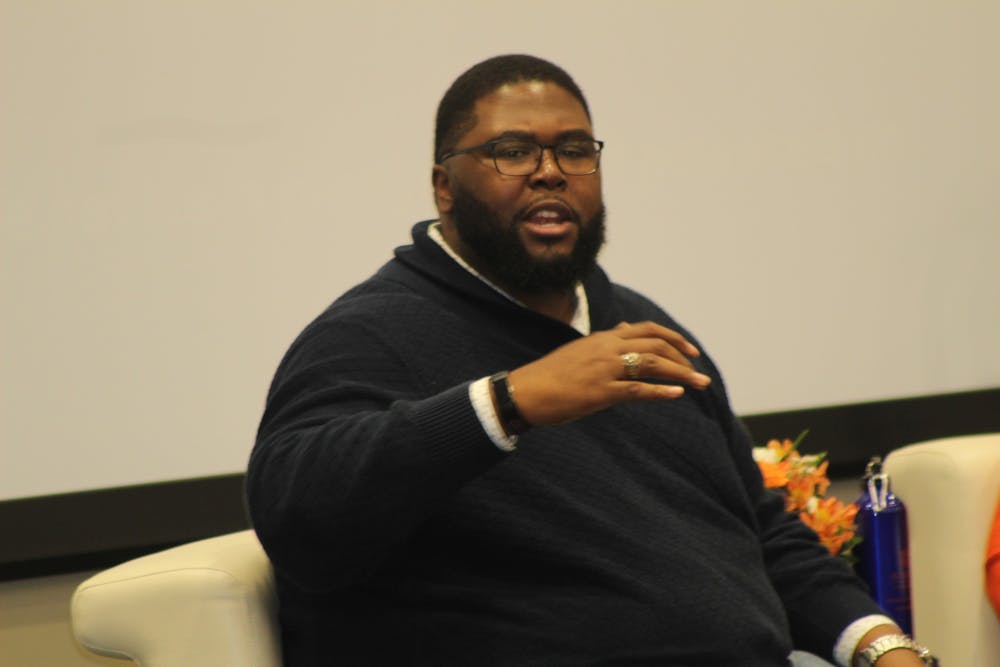On Thursday, Nov. 7, Auburn University hosted a critical conversations event with guest speaker Anthony Jack, sociologist and assistant professor of education at Harvard University. Jack has worked to change the way diversity and inclusion are addressed in education.
“When you remove finance as a barrier, it opens opportunities for low-income students to be able to receive a college degree,” Jack said. “It is not the work — any student admitted can do the work. It is the economic and social hurdles that trip the students up.”
Jack recently finished his book, “The Privileged Poor: How Elite Colleges are Failing Disadvantaged Students.” The book was a conglomeration of the interviews of 103 students that he conducted over two years.
He said he still carries the student’s stories with him.
“My research was to show that there was a gap between low-income students and those who were not,” Jack said. “The research showed what schools take for granted like what students know and what the students can afford.”
Jack said students who attend a more selective school are not guaranteed a better life, only a higher chance of graduation. He said it is important for students to become close with faculty members, so the student will have a genuine, rich recommendation of who they are.
“Social class shapes how you navigate college,” Jack said. “Some students view themselves as equal to adults, and they feel as if they are guaranteed a seat at the table. There are some students who believe they have to keep their head down and do their best to get ahead. Students do not realize that this is how they get overlooked because they are not making those connections.”
Jack mentioned that faculty connections are so important because they have connections in their field and know others that could help students after they graduate.
Jack said one of the biggest topics his research uncovered was the huge presence of food insecurity on college campuses. Food insecurity is not knowing where the next meal is coming from, or if it will come.
He said only one of five schools that claimed they were no loan schools — schools that require zero family contribution — keep their dining halls open during spring break. This matters because students who have no home to return to or who cannot afford to go back home lose that resource.
“I met a young white woman at a conference that stood up in the room and asked if I noticed any gender differences in how students navigated spring break for [those] who couldn’t afford to go home,” Jack said. “I wanted her to feel empowered to tell her story. She then followed by saying she increased her online dating activity to secure dates during the week. In order to eat, she offered her time.”
Jack said one student told him that he looked at the dollar store for microwavable meals. Another student said she had worked extra shifts to eat one meal a day, eventually passing out because of not being able to replenish herself after overworking.
“Never be afraid to ask for help; it is never a sign of weakness but a sign of strength,” Jack said. “To ask someone for help is acknowledging that you are approaching the extent of your own knowledge and you are willing to reach out to someone that has a little more expertise than you to help chart an unfamiliar path.”
Do you like this story? The Plainsman doesn't accept money from tuition or student fees, and we don't charge a subscription fee. But you can donate to support The Plainsman.





